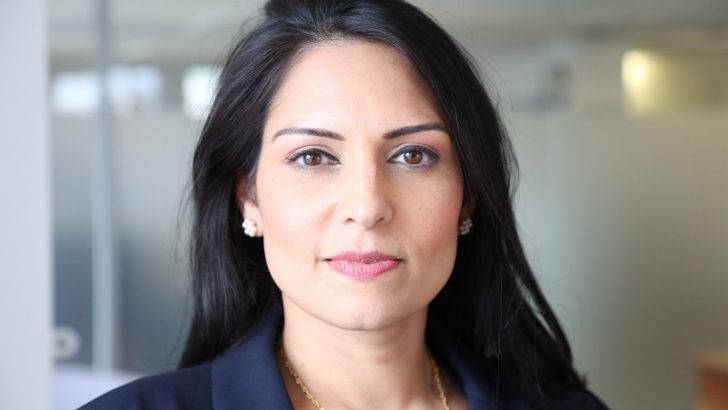Since I dwell, in a sense, in both England and Ireland – now here, now there – I am sometimes held to account in both countries for what the other is doing.
Most recently, in Ireland, I have been charged with allegations that the British (or the English) have become nastily anti-Irish, with the rise of Brexit.
I hear that ‘the Brits’ are criticising Irish politicians and blaming Ireland for the ‘backstop’ problem – being an obstacle to Britain’s exit from the EU. I am told that Irish people in England are now experiencing more hostility because of a deterioration in Irish-British relations.
Well, let me say this for the British dimension in this political arena: I haven’t experienced a smidgen, nor an iota, nor a thrawreen of anti-Irish hostilities in Britain of late.
What I’ve encountered is something quite different: Brits who have found they have an Irish grandparent, have applied for an Irish passport, and have been delighted and excited to receive it.
Last week, an old friend and his wife travelled specially to meet me because the guy had got his Irish passport – thanks to a grandmother born in Cork (whom he had never known). Now he was Irish! And what should he do next? How could he, as it were, be more like an Irishman, now he was one?
Individuals
I know quite a few individuals in this situation – 25% of British people have an Irish parent or grandparent. It’s occurred to me that I could consider opening a consultancy on ‘how to be Irish’!
To be sure, the media criticise our politicians. Why shouldn’t they? Politicians wield enormous power and should be held to account and critiqued. But ordinary people in Britain don’t see Ireland in an adversarial way just because of politicians.
There is hostility because of Brexit, yes – but it’s between the British themselves. ‘Remainers’ and ‘Leavers’ are at each other’s throats. Families and friends argue like the dickens, and sometimes real hatred emerges – Remainers like Alastair Campbell at daggers drawn with Leavers like Priti Patel. But this is an internal British Civil War: it’s not, in my experience, directed against the Irish.
On the question of addressing the question ‘how to be Irish’: years ago, I’d have suggested an awareness that Ireland’s historic identity is as a Catholic country. I’m not sure I’d make that point now.
***
POTUS is not so green after all
When Donald Trump suggested that America buys Greenland – which belongs to Denmark – why was everyone automatically on Denmark’s side?
Denmark is the colonial power and the native people of Greenland, like Ireland 120 years ago, want Home Rule. One leading newspaper in Nuuk responded to Trump’s idea with the headline: “Make Greenland Great Again!”
Admittedly, powers don’t ‘buy’ countries any more, nor should they retain them by conquest. But Greenland desperately needs investment: it’s sitting on natural resources of zinc, diamonds, iron, lead, uranium, oil and gold – and yet its 58,000 people are subsidised by Copenhagen.
The Chinese have spotted the gap in the market and are gradually moving in on Greenland. That is probably what prompted rival interest from POTUS.
***
A little clarification please, Mrs McAleese
You have to hand it to former President Mary McAleese [pictured]: she really is very brainy. And very hard-working. She has penned a 500,000-word doctoral thesis on children’s rights and obligations in canon law. She then defended her thesis – in Italian – speaking for an hour and a half before a panel of three priests at the Gregorian University in Rome.
For this she will be given the Alfons Auer Ethics Award at Tubingen University in Germany on October 30.
Respect! And well-deserved.
This, I think, may change dynamics somewhat between Mary McAleese and the Catholic Church. I believe that some of her animus against the Church has come from a feeling that she hasn’t been esteemed sufficiently by the Holy See for her knowledge and scholarship, and that she has been excluded from councils of power because she is a woman. Her new doctoral position may shift all that.
However, I do feel that Mary should clarify her position on the context around repealing the Eighth Amendment. She supported repeal “with a heart and a half”, in her own words: but she should explain her thinking now in regard to abortion rights versus the life of the unborn. Where exactly does she stand?
She defended her situation on same-sex marriage with personal coherence: she felt hurt on behalf of her gay son that he felt excluded from the norms of social life. Her maternal compassion for her son is surely commendable.
Abortion is a different matter. And any theologian – particularly of Dr McAleese’s standing – should be expected to explain and elucidate their moral position on this issue, which will continue to be a fundamental point in the field of human ethics.


 Mary Kenny
Mary Kenny British Home Secretary and firm Leaver, Priti Patel.
British Home Secretary and firm Leaver, Priti Patel. 